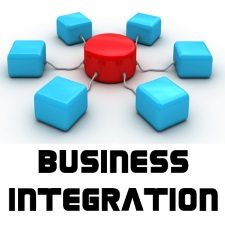Sources of Power in Organization | Internal Source | External Source
Table of Contents
Sources of Powers in an organization
The sources of powers in an organization can be divided into two categories namely
- Internal sources, and
- External sources of powers.
They are briefly explained as below.

Internal Sources of Popover
1. Hierarchy
Hierarchical positions in the organizational structure provide formal authority to the managers at higher levels. The managers with more formal authority influence the policy formulation and implementation extensively. Managers should use this power along with other types of power to make their influence efficient.
2. Influence/Charisma
Influence is an important source of power. This arises from personal qualities like charisma of the leader. Charisma is the leader’s ability to influence others through his/her personal magnetism, enthusiasm and strongly held convictions.
Leaders communicate these convictions and their vision for the future through a dramatic, persuasive manner of speaking. Charismatic leaders create an image of competence and success. Their personal magnetism make them role models for their employees.
The more the followers admire their leaders, the more likely they are to accept their leaders’ values and beliefs. This acceptance makes the leaders to exert significant influence over their follower behaviors. The charismatic leaders are more powerful during the periods of organizational crisis and transition.
3. Control of Strategic Resources
Control of strategic resources is an important source of power. The relative importance of different resources change depending upon the strategy and situation. The leader can gain power by possessing or controlling the strategic resources.
4. Expertise or Knowledge or Skill
Expertise or knowledge is a crucial source of power for top management. Managers acquire power through achievement and performance. The better the achievement and performance, the greater will be the power of the managers. Expertise refers to a manager’s ability to influence the behavior of others. The subordinate follow the managers as they believe that their managers have command and knowledge of the problems.
5. Control of the Environment
Normally events in the company and company’s internal environment affect the company’s performance. Some groups or individual employees have more influence over events and company’s internal environmental factors. This can be a source of power within the company. Marketing and finance managers can control the important internal environmental factors. Therefore, they play a dominant role in the strategic management whereas the human resource manager and production manager take a back seat.
6. Exercising Discretion
Exercising discretion is a most significant source of power within an organization. Individuals due to the nature and level of their jobs, derive power. These individual employees occupy different positions in the organization. Strategy is to be implemented by a number of individuals across the organization. These individuals use the power so derived in the process of strategy implementation.
Sources of Powers for External Stakeholders
So for, we have discussed the sources of power for the internal groups. Now, we discuss the sources of power for external stakeholders.
1. Resource Dependence
Almost all external stakeholders like banks, financial companies, suppliers of raw materials etc. derive power as the company depends on them for resources. The short term survival of the company is mostly dependent on any one of these stakeholders.
2. Involvement in Implementation
The importance has been shifted from manufacturing to the distribution. The distribution agencies have the power of knowledge about consumer’s tastes and preferences. In fact distribution agencies determine or influence the type of product to be produced. Thus the distribution agencies derive power by involving in the implementation process.
3. Expertise
The agencies having specialized skill or expertise that is demanded by the company derive the power for their expertise knowledge.
4. Internal Links
Internal links can provide a way for external stakeholders to influence the company’s strategy. Highly authoritarian organization normally does not provide inter links and give chance to external stakeholders to influence the strategic management process.



